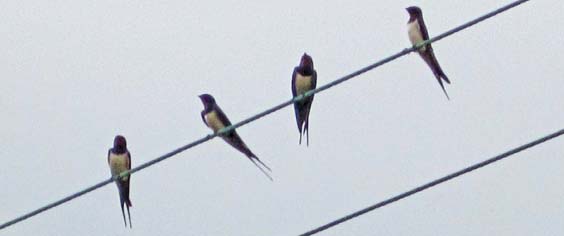… and all the sea were ink…
Here’s a thought building on both the biblical worldview covered in the last couple of posts, and the analogy (if that is all it is) between the written word as both material and as message , and the creation, explored in the last post (thanks to Merv and C S Lewis).
It is still uncommon, perhaps almost unknown in TE circles, for the old Aristotelian categories of formal and final causation to be admitted to be part of nature, even by Christians in the sciences. Of course, by Christians God’s overall purpose (final causation) is admitted, but that is external to nature. The picture portrayed is that God created secondary efficient causes to bring about (more or maybe less precisely) his aims for the world. Those processes themselves, however, are as blind and undirectional as any secular materialist would claim. And so for all the talk of creation’s “freedom to be itself”, what “itself” actually is is a series of laws and materials, which work through necessity and chance, but always as efficient causes investigable by science. No gaps are permitted in that seamless cause and effect chain. If we understand the manufacture of paper and ink, we understand God’s role in nature.
There is little discussion of information (ie formal causation) in such views – in fact that’s one of the conflict points with Intelligent Design. Either the information in DNA, RNA and other biological codes is held not to be “true” information (as many secular critics also claim), or else it’s seen purely as the product of efficient causation: God has so ordered the Universe that monkeys do blindly type Shakespeare. So the God who is too wise to have to fiddle with his creation after its inception is seen in that way because it is exclusively efficient causation that is in mind. For all “natural” causes are only efficient and material causes, and therefore God could only act along the way by interrupting or violating them through his own superimposed efficient causation.
Now we’ve discussed some fallacies in that through the exploration of concurrence. God does not have to “interfere” in order to influence efficient causation – he is already acting in all of them anyway. But that apart, the “working through nature” theme above is dependent on the impoverished view of causation in science embraced since Descartes and his successors, and accordingly gives a rather impoverished view of nature as a mere cause-effect chain.
If, as the previous article suggests, the world might “really” be not just paper and ink, contra the poem (which surprisingly dates back to 1658), and is in fact also the poem written on it, then perhaps that does not simply mean that God is more than material reality, but that his creation is too. Would it not be a more vibrant and significant creation if final causality were built into it as well as efficient causality? For example, if in some natural (but Aristotelian) way, life actually is striving purposefully towards goals, rather than being just the victim of chance and necessity, would not that be more consistent with a loving Father who creates through his Logos, the Son? Consequently, is it also not reasonable that form (information) should be a real part of nature, and that form should include within it it such intrinsic teleology?
As I see the pair of swallows nesting in our stable as intent as any human parents on raising their brood, fighting off jays and magpies, working from dawn till dusk to feed them, the idea that, somehow, the Lord’s own purpose and passion are infused into their lives makes perfect sense. When I think that in a month or two the whole family will be braving the elements and Nigerian guns to reach their South African feeding grounds, random mutation and natural selection seem a very implausible way for God to express himself, at least if that were all there is.
But maybe I’m just being anthropomorphic. Why, after all, would God make swallows and the rest of creation look purposeful when science tells us they’re not?

